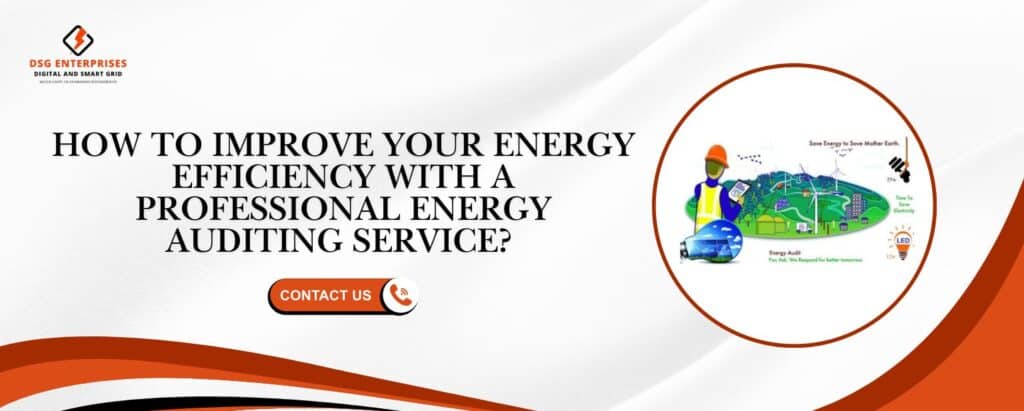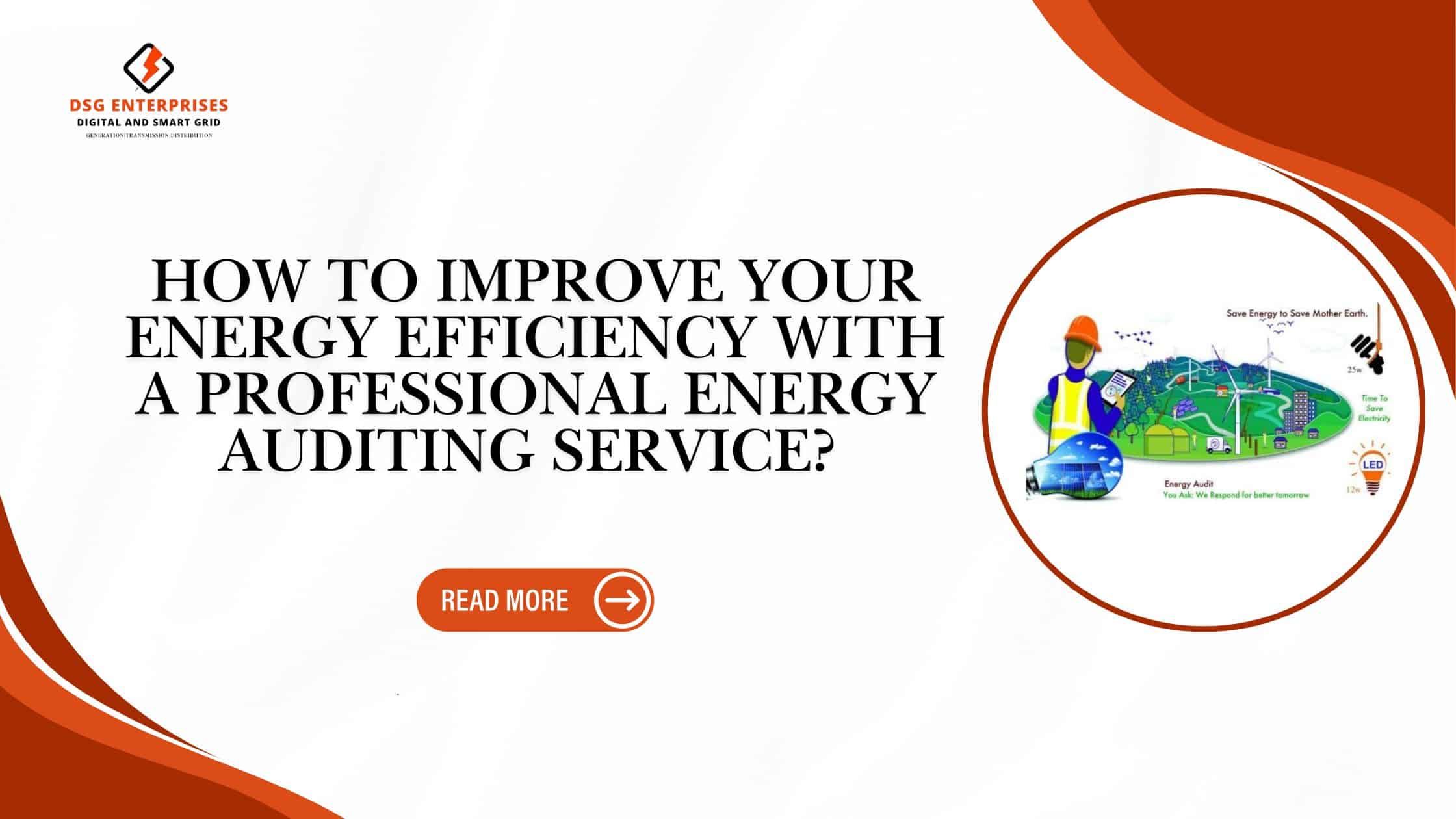Energy efficiency is not just a buzzword in today’s world; it’s a necessity for businesses and individuals striving to reduce costs, minimize environmental impact, and promote sustainability. One of the most effective ways to enhance energy efficiency is through a professional energy auditing service. An energy audit, also known as an energy assessment or study, identifies how, where, and when energy is being consumed in a facility and highlights opportunities for improvement. This blog will explore the purpose, process, and benefits of energy auditing while emphasizing how it can revolutionize energy management in your facility.
Overview of Energy Auditing Service
Energy auditing serves as a comprehensive evaluation of a facility’s energy consumption patterns. The primary objective is to pinpoint inefficiencies, recommend actionable measures to reduce waste, and ultimately lower energy expenses. With rising energy costs, neglecting energy efficiency can place businesses and facilities at financial risk.
For example, in the UAE, domestic and industrial properties account for approximately 15% of carbon emissions. This indicates significant inefficiency, resulting in unnecessary energy consumption and financial losses. A professional energy audit not only identifies these inefficiencies but also provides actionable insights into reducing carbon footprints and improving overall operational efficiency.
The Purpose of Energy Auditing Service
Energy auditing addresses key questions such as:
- Why is energy being consumed in certain patterns?
- Where are inefficiencies occurring?
- How can energy consumption be optimized?
- When are peak energy usage times, and how can they be managed effectively?
By answering these questions, an energy audit helps businesses take control of their energy usage. Facilities that undergo audits every 2–3 years ensure maximum efficiency and remain prepared for fluctuating energy markets.
The Three Phases of Energy Auditing Service
Energy auditing typically involves three crucial phases:
- Investigation Phase: The first phase involves collecting detailed information about the facility, including:
- Historical energy consumption over 1–2 years
- Energy supply contracts and tariffs
- Building layout, staff numbers, and production levels
- Occupancy hours and usage patterns
- Monitoring Phase: The second phase involves real-time data collection and performance monitoring. This includes:
- Electrical and gas load profiles
- Ventilation rates and internal temperature readings
- Boiler combustion efficiency and lighting levels
- Analysis and Reporting Phase: In the final phase, the auditor analyzes the data to identify actionable energy-saving opportunities. The findings typically include:
- The facility’s overall energy efficiency
- Greenhouse gas emissions index (GEI)
- Life-cycle cost analysis of energy-saving measures

How is the Energy Auditing Service Performed?
Energy auditing is a structured process that ensures accuracy and actionable results. Here’s a step-by-step breakdown of how it’s performed:
- Preliminary Review of Utility Data: The auditor begins by reviewing at least two years of utility data to identify usage patterns and seasonal variations. From this, metrics like the Energy Utilization Index (EUI) are calculated. These insights help compare the facility’s performance against industry benchmarks and determine areas for improvement.
- On-Site Assessment: A physical inspection of the facility follows. The auditor examines:
- Construction details of the building envelope (walls, roofs, windows, insulation)
- HVAC systems, lighting systems, and control methods
- Service hot water systems
- Data Analysis: Once the data is collected, the auditor conducts a thorough energy and cost analysis. Using methodologies tailored to the facility’s needs, the auditor evaluates potential energy-saving measures (EEMs) and their feasibility.
- Audit Report: The final report includes:
- A detailed inventory of equipment and energy usage
- Recommendations for energy-saving measures (low-cost, no-cost, and long-term)
- Financial analysis and cost-benefit projections
Benefits of Energy Auditing
Investing in a professional energy auditing service offers numerous benefits, including:
- Reduced Energy Costs: Energy audits identify inefficiencies, enabling facilities to cut down on unnecessary energy consumption and lower operational expenses.
- Enhanced Competitiveness: By reducing production costs, businesses can allocate resources more effectively and gain a competitive edge in their industry.
- Environmental Benefits: Energy efficiency reduces greenhouse gas emissions and minimizes the environmental impact associated with energy production and consumption.
- Improved Energy Security: Reducing dependence on external energy sources enhances a facility’s energy security and resilience against market fluctuations.
- Sustainability Goals: For organizations committed to sustainability, energy audits provide the foundation for achieving environmental targets and corporate social responsibility goals.
Why Choose a Professional Energy Auditing Service?
While it may be tempting to rely on in-house assessments, professional energy auditors bring specialized expertise and tools that ensure precision and actionable results. They leverage advanced technologies, industry benchmarks, and proven methodologies to deliver comprehensive energy-saving strategies tailored to your facility.
Moreover, professional auditors work closely with building owners, staff, and other stakeholders to ensure data accuracy and practical recommendations. Their holistic approach ensures that energy efficiency measures align with the facility’s operational and financial goals.
Conclusion
Improving energy efficiency is not just a financial imperative but also an environmental and operational necessity. A professional energy auditing service offers a detailed roadmap for reducing energy waste, optimizing systems, and achieving long-term sustainability.
By identifying inefficiencies, recommending actionable measures, and providing financial analysis, energy audits empower facilities to take control of their energy usage and drive meaningful change. With the rising costs of energy and increasing emphasis on sustainability, there’s never been a better time to invest in a professional energy auditing service.
So, if you’re looking to enhance your facility’s energy efficiency, reduce costs, and contribute to a greener future, start with a professional energy audit. It’s an investment that pays dividends for years to come.
At Digital & Smart Grid Enterprises, we take pride in being leading Energy Auditing Services Providers. Our commitment is to deliver tailored relay solutions that meet various industry requirements. Whether you have questions or wish to make a purchase, feel free to contact us for Energy Auditing Service costs at +917021624024 or via email at marketing@dsgenterprises.in. With our deep expertise in Power System Studies, we guarantee consistent support throughout your journey. Discover our extensive product range by clicking here for more information.

